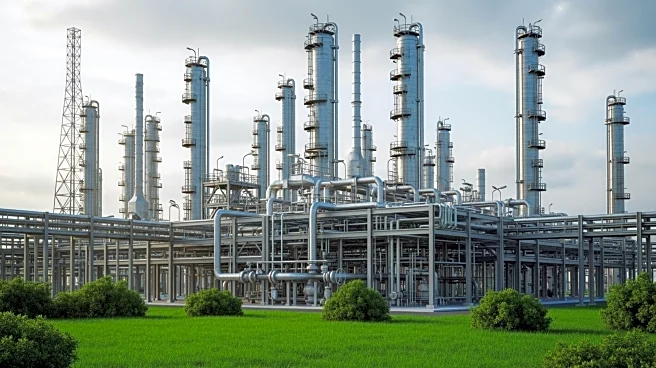What's Happening?
The Superior Refinery, operated by over 100 members of the International Union of Operating Engineers Local 420, has been the subject of scrutiny following claims of environmental violations. Harry O'Davis
alleged that the refinery was not adhering to emission standards, suggesting that union members were neglecting their responsibilities. However, the union clarified that the deviations from operating permits were self-reported, emphasizing their commitment to environmental standards. Petroleum refineries are subject to stringent regulations, requiring permits that specify allowable emission levels. Adjustments to processing units, which operate under high temperatures and pressures, are complex and require significant time and manpower to ensure compliance with these permits.
Why It's Important?
The situation at the Superior Refinery highlights the challenges faced by heavily regulated industries in maintaining compliance with environmental standards. The self-reporting of deviations underscores the refinery's proactive approach to environmental management, which is crucial in an era of increasing scrutiny on industrial emissions. The union's response to the allegations is significant as it defends the professionalism and environmental consciousness of its members, who are integral to the refinery's operations. This incident may influence public perception of the refinery and its operators, potentially affecting local community relations and regulatory oversight.
What's Next?
The union has called for Harry O'Davis to retract his statements, suggesting a need for better understanding of the operational complexities involved in refinery management. This situation may prompt further dialogue between the refinery, its operators, and the community to address environmental concerns and improve transparency. Regulatory bodies might also review the self-reported deviations to ensure compliance and assess the effectiveness of current emission control systems. The outcome could lead to adjustments in operational practices or regulatory requirements to enhance environmental protection.
Beyond the Headlines
The broader implications of this incident may include discussions on the balance between industrial operations and environmental stewardship. It raises questions about the role of unions in advocating for both worker rights and environmental responsibility. The refinery's proactive self-reporting could serve as a model for other facilities, promoting a culture of transparency and accountability in the industry. Additionally, this situation may influence future regulatory policies, emphasizing the importance of collaboration between industry stakeholders and environmental agencies.










